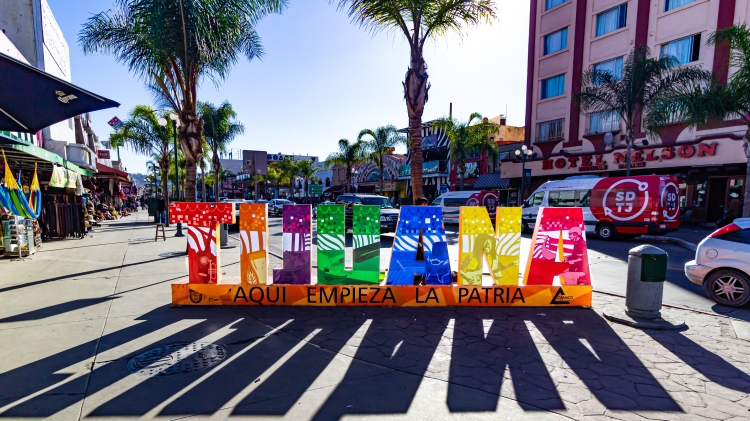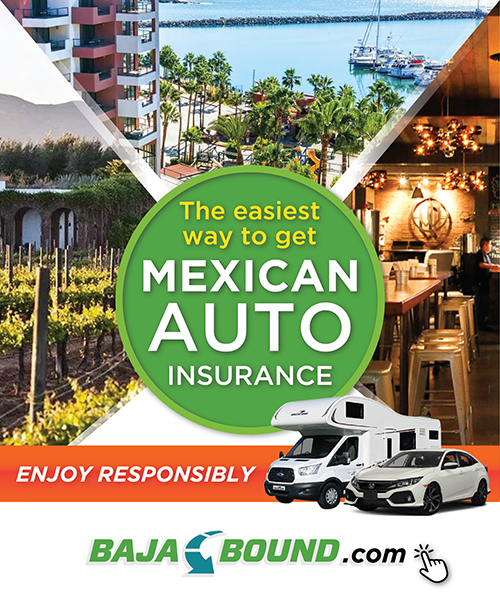
5 or More Baja Safety Tips for a Worry-Free Adventure
Baja, California is a road-tripper’s paradise, where desert dunes meet turquoise seas and charming towns buzz with culture. Whether you’re driving the iconic Transpeninsular Highway, camping on remote beaches, or exploring hidden trails, Baja promises an adventure like no other. But with its wild beauty comes a need for vigilance—Baja safety is key to ensuring your trip is thrilling for all the right reasons. From rugged terrain to border crossings, this peninsula has its quirks, and being prepared can make the difference between a dream journey and a stressful ordeal.
Is Baja safe? Generally, yes—millions visit each year without issue—but safety requires proactive steps to navigate its unique challenges. In this guide, we’ll share five or more Baja safety tips to keep you secure, whether you’re a solo traveler, a family on vacation, or a group of thrill-seekers. Let’s dive into how to enjoy Baja’s wonders with confidence and peace of mind.
Why Safety Matters
Baja stretches over 700 miles, blending bustling tourist hubs like Cabo San Lucas with isolated stretches where help is scarce. Its appeal lies in its raw, untamed nature—think winding roads, off-grid campsites, and a border crossing that shifts you into a new legal landscape. Overall safety isn’t about fear; it’s about preparation. By understanding the risks—like remote driving conditions, petty theft, or cultural differences—you can focus on the fun: whale watching, tacos by the sea, and starry desert nights. Here’s how to stay safe while soaking it all in.
5 or More Baja Safety Tips
- Plan Your Route for Baja Safety
A well-planned route is the backbone of safety. Before you hit the road, map out your journey—know the distances between stops like Ensenada, Mulegé, or Loreto, and check road conditions. Baja’s highways can be narrow or unpaved, especially off Mexico 1, so use updated GPS and carry a physical map as a backup—cell service fades in remote areas. Research fuel stops, campsites, and towns with services to avoid getting stranded. Planning ahead ensures Baja safety by keeping you on track and ready for the unexpected. - Drive Smart to Boost Baja Safety
Baja’s roads demand respect—potholes, sharp curves, and roaming animals are common hazards. For your safety, drive during daylight hours when visibility is best; night driving increases risks due to poor lighting and fatigue. Stick to speed limits (posted in kilometers), watch for sudden obstacles, and keep your vehicle in top shape—check tires, brakes, and fluids before you go. Defensive driving is a cornerstone of Baja safety, reducing the chance of accidents on this wild peninsula. - Secure Insurance for Baja Safety
Crossing into Mexico changes the insurance game. U.S. auto policies typically don’t cover Baja, and Mexican law requires liability insurance from a local provider. For Baja safety, invest in a policy that includes liability, collision, and roadside assistance—think of it as your safety net for breakdowns, accidents, or theft. Carry proof of coverage, as authorities may check at border crossings or checkpoints. Proper insurance enhances Baja safety by protecting you legally and financially, letting you explore without worry. - Protect Your Belongings for Baja Safety
Petty theft—like stolen gear from a parked car—can happen in Baja, especially in tourist zones or remote spots. Baja safety means staying proactive: lock your vehicle, avoid leaving valuables in plain sight, and use a steering wheel lock for extra deterrence. When camping, secure your tent or camper van and keep essentials like passports or cash on you. Simple habits like these bolster safety, keeping your trip focused on adventure, not loss. - Stay Hydrated and Stocked for Baja Safety
Baja’s desert climate is relentless—daytime heat can soar, and water sources are scarce outside towns. Baja safety hinges on hydration: pack at least a gallon of water per person per day, plus extra for emergencies. Stock up on non-perishable snacks (nuts, dried fruit) and supplies like sunscreen or a first-aid kit in places like La Paz or San Quintín. Being prepared for Baja’s harsh conditions ensures your safety, especially in remote areas where help isn’t immediate. - Respect Local Laws and Culture for Baja Safety
Baja safety extends beyond the road—it’s about blending in respectfully. Learn basic Spanish phrases—“¿Dónde está…?” (Where is…?) or “Ayuda” (Help)—to communicate with locals, who may not speak English outside tourist hubs. Follow Mexican laws, like carrying your driver’s license and vehicle docs, and avoid flashy displays of wealth that could attract attention. Respecting the culture enhances safety by fostering goodwill and reducing misunderstandings. - Choose Safe Camping Spots for Baja Safety
Camping is a Baja highlight—think Playa Santispac or Bahía Concepción—but site selection matters. For Baja safety, pick established campgrounds with good reviews for security and amenities, like water or restrooms. Avoid isolated spots near highways where theft risks rise, and check local advice for areas to steer clear of. Booking ahead during peak seasons (winter) ensures you’ve got a safe base, letting you enjoy Baja’s starry skies without worry.
Additional Safety Considerations
- Emergency Preparedness: Baja’s remoteness—think the stretch from Cataviña to Guerrero Negro—means help can be hours away. Carry a satellite phone or emergency beacon if venturing off-grid, and tell someone your itinerary. A stocked emergency kit (flares, tools, blankets) boosts safety in a pinch.
- Health Precautions: Tap water isn’t always safe in Baja—stick to bottled or purified water to avoid illness. Pack medications, insect repellent, and hand sanitizer for safety on the health front.
- Wildlife Awareness: Baja’s fauna—snakes, scorpions, or jellyfish—can pose risks. Wear shoes on trails, shake out gear before use, and swim with caution. Knowing what to watch for enhances Baja safety in nature.
Is Baja Safe for Tourists? Busting Myths
Baja safety often gets overshadowed by broader Mexico travel concerns, but the reality is reassuring. Violent crime is rare in tourist areas, and most risks—like petty theft or road hazards—are manageable with preparation. Stats back this up: Baja California Sur, home to Cabo and La Paz, consistently ranks among Mexico’s safest states for visitors. Baja safety isn’t about avoiding the peninsula—it’s about traveling smart to enjoy it fully.
How to Enhance Baja Safety on Your Trip
- Travel in Groups: Solo trips are doable, but a companion or convoy adds a layer of Baja safety, especially in remote zones.
- Stay Connected: Cell service dips in Baja’s wilder reaches—download offline maps (like our Baja Maps) and check in with family when you can.
- Trust Your Instincts: If a spot feels off—say, a deserted beach at dusk—move on. Baja safety thrives on intuition paired with planning.
Final Thoughts: Prioritizing Baja Safety for an Epic Journey
Baja, California is a land of wonder—where you can surf Pacific waves, hike desert peaks, and savor fresh ceviche by the sea. But Baja safety is the foundation that makes these experiences possible. With these five or more Baja safety tips—planning your route, driving smart, securing insurance, protecting your gear, staying stocked, respecting locals, and choosing safe camps—you’re ready to tackle the peninsula’s challenges with confidence.
Baja safety isn’t about fear; it’s about empowerment. It’s knowing you’ve got the tools to handle a flat tire in the desert, a checkpoint stop, or a night under the stars. So, pack your sense of adventure, double-check your prep, and dive into Baja’s magic. The road ahead is yours—safe, secure, and spectacular.
Baja Safety Source:
Updated Mexico Travel Advisory. https://travel.state.gov/content/travel/en/traveladvisories/traveladvisories/mexico-travel-advisory.html.


